22ND LAS PALMAS DE GRAN CANARIA INTERNATIONAL FILM FESTIVAL – 22 FICLPGC (14 – 23 APRIL)
- Canarias Cinema will divide its program in six sessions: five feature films and another one dedicated to seven short films that will be available from the first weekend of the Festival onward
- Filmmaker Ione Atenea and festival programmers and directors Virginia Pablos and Suso Novás Andrade will be in charge of granting this edition’s Richard Leacock Awards
Las Palmas de Gran Canaria, Friday, March 3, 2023.- The jury of Canarias Cinema will judge twelve works in the 22nd edition of the Las Palmas de Gran Canaria International Film Festival. Of these, five will compete for the Richard Leacock Award for Best Feature Film and another seven will do so to win the same award in the short film category
The selection includes veterans of the Grancanarian event such as Octavio Guerra or Fatima Luzardo, but, above all, it gives visibility to films that, with a Canarian production, origin or theme, have already begun to appear at other prestigious festivals.
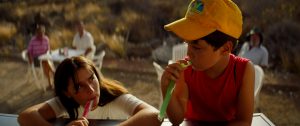
The feature-film selection includes Omar Razzak’s third film, although his first in the field of narrative fiction. Matar cangrejos takes the viewer to the 90s in Tenerife, a decade in which two brothers deal with disparate realities: while the little one is fascinated by Michael Jackson’s visit to the island, the oldest attends the eviction of their grandmother. The project, selected by the Locarno Festival’s Match Me! Program, has Dutch Hispanic funding.
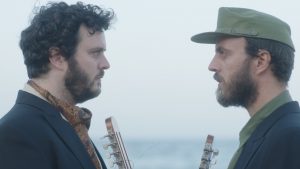
It is precisely Omar Razzak, along with Carolina Alvarez, who produces a documentary that arrives after having appeared, among other festivals, at SEMINCI’s last edition. In this case, the descendants of the Aguilar Quartet (three brothers and a cousin) star in the Spanish-Argentinian play by Amparo Aguilar herself, La Tara. A finding and an unresolved conflict are portrayed in the film, which starts with the discovery of the soundtrack of the only surrealist film shot in Argentina, Tararina: The Bohemian of Today. The work traces some moments from the family’s past in order to unravel the cause of a break-up.
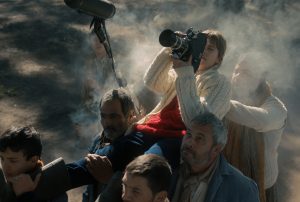
The winner of the Best Cinematography Award at the Seville European Film Festival, Matadero, by Argentinian Santiago Fillol, is another one of the projects included in the Canarian section of the Festival. Once again, the involvement of a Canarian production company, in this case El Viaje Films, makes it possible for the work to be present in Canarias Cinema. Fillol, who visited the event with his Ich Bin Enric Marco, returns with a fiction that documents the visit of an American filmmaker to the Argentinian pampa to portray a picture about class struggle and the slaughter of workers by his bosses in Argentina in 1974.
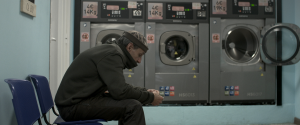
After having appeared in the Official Section of the Spanish Film Festival in Malaga and having participated in the last edition of MiradasDoc, Gran-Canaria native Octavio Guerra returns home with his documentary Yo tenía una vida, which records the experiences of Jesus, a man who struggles with social rehabilitation after having lived on the street for a decade.

The fifth feature film that will try to obtain the Leacock Award has been made by Eduardo Diaz. His work El sueño del ladrón starts from the first entirely Canarian production, El ladrón de los guantes blancos, by José González Rivero and Romualdo García de Paredes, a title that generated huge expectation at the time of its premiere in 1926. 97 years later, Eduardo Diaz offers a revision and re-reading of the film landmark that highlights the strength and validity of the classic. It does so with today’s resources and from a current perspective, but trying to preserve the magic that caused the screening of the film back then.
On the other hand, the short-film selection includes seven works that have stood out in different calls or film events. In total, a 94-minute viewing that approaches the reality of the audiovisual in the Archipelago from different points of view: production, direction or location; but also from different genres and languages.
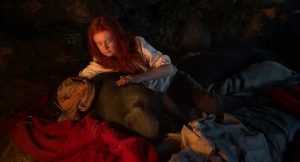
The session includes Maria Abenia Gracia’s debut short film, Circe. A title that was programmed by the Gijon Film Festival within its Official Section’s Tierres en Trance and that was part of the Mecas Island section at the 5th edition of the festival market. Circe’s life runs peacefully and in isolation. She lives on a cliff, grazes pigs and receives, from time to time, visits from neighbors who appreciate her witchcraft practices. The work was chosen by the Canarian Institute for Cultural Development of the Government of the Canary Islands to be part of the catalog ‘Canarias en corto’. In this regard, the jury that selected the winning works explained that Circe combines a modern treatment with the exploration of oral stories from the past.
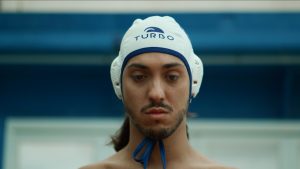
Chloro, by Pablo Borges Diaz-Llanos, is another one of the works selected in the 22nd Film Festival’s Canarias Cinema section. Like Circe, this short films that explores the relationship between two water polo players has been integrated into the catalog ‘Canarias en corto’.
According to the synopsis, between Miguel and Diego, two athletes with different goals – one wants to enjoy the sport and the other to be in the elite – there’s more than just chlorine. The professionals who were part of the selection process of the Canarian Government’s catalog argued when choosing it that it is a “solvent queer short film and a necessary review of masculinity”.
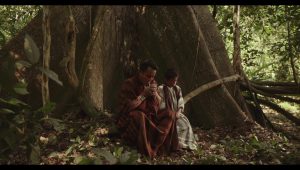
Shirampari: Herencias del río, by Peruvian Lucia Florez, was one of the few works selected by the Official Section at Sundance among nearly eleven thousand candidates. Now, this documentary about the Ashaninka indigenous legacy in the Peruvian Amazon arrives to the Gran Canaria event to depict the relationship between the community leader and his son, thus capturing the rites that accompany the transition to adult life. Shot in cinéma-vérité style and in native tongue, the document records the community’s absolute respect for nature and the value of cultures that are on the verge of extinction.

Filmmaker Jorge Canada Escorihuela authors El padre bueno, a fiction short film that also follows a father and a son: a Zahori suffocated by debts and very small and challenging kid. Together they seek water, and in this search for the occult they encounter ghosts and presences from the past.
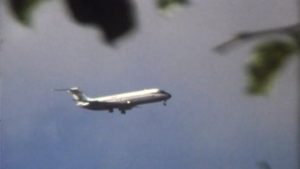
Todo el mundo habla de Javier is the briefest short (2 minutes) with which Fatima Luzardo won the 2022 Visionaria Audience Award, a call launched by Vertigo Film Association. Its subject is the murder of Javier Fernandez Quesada on December 12, 1977, at the entrance of the main building of the University of La Laguna, by shots from the Civil Guard.

The screening also includes a title of tension, Visionado, by Manuel Roman Sierra, winner of the Best Short Film and Best Editing Awards at the Tenerife Noir Express event. The darkness, the wandering of people and vehicles returning home that accompanies the night and an instant in which life stops, all in one sequence, are some of the elements that make the pieces fit into this work of fiction that moves between film noir and horror. It is also another one of the films selected for the catalog ‘Canarias en corto’.
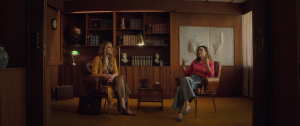
And from horror to comedy, because Canarias Cinema also includes in its program En un segundo, a work that takes Segundo to therapy and showcases writer, screenwriter and filmmaker Pablo Fajardo Juan’s self-confidence behind the cameras. On this piece, selected as well for the Canary Government’s catalog, the jury highlighted its style, rhythm and performances.
Canarias Cinema Jury
Three important figures in the cinema field will meet in Las Palmas de Gran Canaria to grant this edition’s Richard Leacock Awards: young filmmaker Ione Atenea, who received last edition’s Panorama Spain Award for Horses Die at Dawn (a film which hits the screens today, March 3rd), will return to the city that also welcomed her with her debut film January, but now she’ll do it to enjoy the cinema directly related to the Archipelago; beside her, we shall find Virginia Pablos, director and programmer of ASFF (Amsterdam Spanish Film Festival); and Suso Novás Andrade, codirector of Pontevedra Novos Cinemas International Film Festival.
Once again, the distribution company Digital 104, which celebrates its 10-year anniversary this year, shall grant an award that provides support and experience at moving the selected piece around festivals all over the world.
Share this Post

